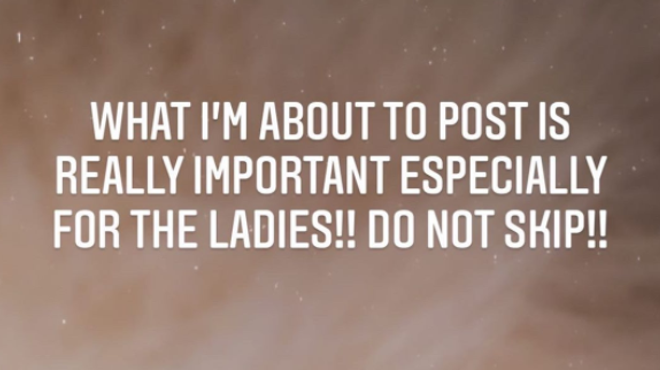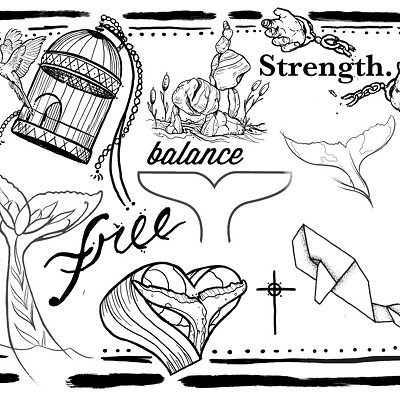They were just children, whose drug-addled parents sold them to predators to pay back a debt. They were girls who fell for dangerous, older men online. Foreign brides who met their husbands overseas. And they were boys, too. They were victims as young as 11 and as old as 40. All forced into prostitution or servitude. All contacted Mabel Elsom and a team of advocates at Lutheran Community Services in downtown Spokane in the past year, looking for help.
In a six-week period near the end of this summer, LCS worked with seven children who were victims of local commercial sex exploitation. For LCS, this was an unusually high caseload, involving what advocates say is the state's most underserved and unrecognized population. The referrals and crisis calls LCS receives have slowed down, but it's only mid-November.
"The last few months have been very, very busy for us," Elsom says.
In March, the Seattle-based Center for Children & Youth Justice finalized a first-of-its-kind coordinated response protocol to help law enforcement and social service providers identify child sex trafficking victims in Washington state and provide them with any services they need, and Spokane County was chosen as one of five pilot sites to implement it.
In Spokane, Elsom is leading a countywide task force of local and federal law enforcement agencies, prosecuting and defense attorneys, court services, and social service providers that CCYJ is training to identify victims and research a problem about which so little is known: Who are the victims of child sex trafficking in Washington and how many are there?
"There's absolutely no data," says CCYJ's Terri Kimball on the dearth of statistics on commercially sexually exploited youth in Washington. And until now, there's never been a systematic way of collecting it. CCYJ has contracted with the Washington State Center for Court Research to develop an expansive data collection plan in conjunction with regional task force members.
Starting this month, the Center for Court Research will begin training regional coalitions in data gathering and review. By this spring, Kimball says the center will have preliminary figures representing the magnitude of child sex trafficking in Washington.
"Without having numbers and knowing more about these kids and where they're being trafficked to and from and what they need, we're just somewhat shooting blind," Kimball says. "It's critical for everything we do, all resource development, planning, resource deployment, you really have to have the information."
In 2003, Washington became the first state in the country to criminalize human trafficking, making it a serious felony to recruit, harbor, transport or obtain a person for sex or labor using force, fraud or coercion. But the first conviction under the state's human trafficking law didn't occur until six years later, when a Seattle teenager named DeShawn "Cashmoney" Clark was found guilty of pimping underage girls.
Last year, state lawmakers passed a dozen bills aimed at penalizing traffickers and protecting their victims. But convictions in Washington state are rare. In Spokane County, no one has ever been prosecuted for sex trafficking under the slew of state laws.
In fact, Spokane sheriff's Det. Dave Skogen says in his 17 years as a sex crimes detective, he's received only two reports of adult human trafficking and not a single report involving a child. In one case last year, there wasn't enough evidence to prosecute the alleged perpetrators. In the other, the victim suddenly refused to speak to investigators.
"That doesn't mean that we're not still looking and we're not still aware," he says. "One of the unfortunate parts of police work is, though we try our best to be proactive and see crime and crush it, if you will, the fact of the matter is, the kind of child human trafficking we're typically talking about is sex trade. That's not something people talk about."
In the past three years, the Washington Anti-Trafficking Response Network's six community partners around the state (one of which is Lutheran Community Services) identified 250 victims of human trafficking, according to Kathleen Morris, the network's program manager.
"But I strongly, strongly feel that that does not even scratch the surface," Morris says. "Whether they're immigrants or vulnerable adults or children engaged in commercial sex work, there's a distrust of law enforcement, a distrust of systems in general, if there even is a way to access those things that can help protect them."
Victims of trafficking often face language barriers that prevent them from seeking help, or their traffickers threaten them and their families to keep them from speaking out. They're isolated, unaware of their rights and afraid that their actions will result in further abuse.
"It is very hidden," says Bridget Cannon, who runs Crosswalk, Volunteers of America's emergency teen shelter. The kids she meets are often too ashamed to talk about it until much later, when they're older and have moved on.
"People hear 'human trafficking,' they think of slavery, immigration, undocumented people who are coming in," Cannon says. "It looks a lot different for this population."
Cannon prefers the phrase "survival sex." Without a place to stay, food to eat, or clean clothes to wear, young people — often homeless or runaways — will exchange sex for basic necessities. Young girls and boys are recruited, or "groomed" as Cannon puts it, to develop trusting relationships with predators who later exploit them.
"They just want to feel loved and feel like they have a place to belong, and these guys know how to do that, take them in, give them a sense of belonging, a sense of worth, and then turn around and pimp them out and use them for themselves," she says. "I think this is a lot more prevalent than what is ever reported, that's for darn sure." ♦






















